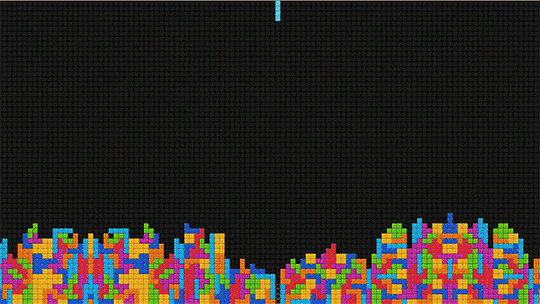FM93 reporter: Wang Ju Correspondent: Guo Jun
The red dot on the phone must be clicked away,
The shoes on the shoe cabinet must be placed in one direction,
Toilet paper must be torn neatly,
After going out, often look back to confirm if it’s locked
…….
Many people have experienced these situations in life. So, some people humorously refer to themselves as “OCD patients.”
However, in reality, most of these situations are a form of compulsion. True Obsessive-Compulsive Disorder (OCD) is a highly debilitating mental illness, known as “psychological cancer,” with far more serious consequences than you may think.
Having Obsessive-Compulsive Disorder From a Young Age
Aunt Wang, 60 years old, can’t stop bathing for 6 hours
“I just can’t control myself, I feel dirty all over.” Aunt Wang (pseudonym), 60, said painfully. “Not just the arms, everywhere on my body is scratched by me, this is all from washing, I know it’s not necessary, but…” At this point, she lowered her head again, rubbing her hands continuously.
Since the beginning of summer, Aunt Wang’s bathing frequency has significantly increased, almost four to five times a day, and the bathing time has become longer and longer. At first, family members thought it was due to the hot weather and cooling off. But a few days ago, she bathed from 9 am until after 3 pm, her family noticed she hadn’t even eaten lunch, they felt it was abnormal, and upon inquiry, they discovered the truth and sent her to Zhejiang Hospital for treatment.
Dr. Wu Xuxu from the psychiatric department at Zhejiang Hospital, who received her, learned that Aunt Wang had a history of OCD for over 20 years. When she was young, she was very clean and had mild Obsessive-Compulsive Disorder, but she didn’t feel distressed by it. In her forties, her symptoms worsened, with repeated handwashing and bathing episodes, always feeling sterile and not allowing anyone to touch her. If someone touched her, she had to clean herself. Initially, it was just a quick rinse, but gradually, the washing time increased to over ten minutes, and even one to two hours.
Through medication and psychotherapy, Aunt Wang’s condition has been effectively relieved.
What is Obsessive-Compulsive Disorder (OCD)?
Obsessive-Compulsive Disorder (OCD) is an anxiety disorder. Dr. Wu Wanzhen, deputy chief physician of the psychiatric department at Zhejiang Hospital, explained that the symptoms are mainly divided into two categories – obsessive thoughts and compulsive behaviors.
Obsessive thoughts are recurring, unwanted ideas, doubts, images, or impulses that cause distress and conflict. Common obsessive thoughts include:
1. Obsessive worries or suspicions: Worries about not doing things properly, suspecting being infected with a disease, being misunderstood for saying the wrong thing, and others.
2. Obsessive memories: Repeatedly recalling events, music heard, words spoken, scenes witnessed. Being interrupted during recollection causes frustration.
3. Obsessive rumination: Patients repeatedly contemplate common things, concepts, or phenomena, searching excessively for meaning even though they know it’s pointless. Examples include pondering “Why do people speak?” “Why does it rain?” “Why is the Earth round and not square?” “Why does 1+1 equal 2?”
4. Obsessive oppositional ideas: Patients associate one concept or sentence with an opposing one involuntarily. For example, thinking of “peace” immediately brings to mind “war;” seeing “beauty” triggers thoughts of “ugly.”
Compulsive behaviors involve repetitive actions or mental activities, usually stemming from obsessive thoughts or being driven by them. They are often involuntary but difficult to restrain. Common compulsive behaviors include:
1. Compulsive checking: Doubting one’s actions, repeatedly checking, fearing household mishaps or disasters, leading to heightened anxiety. Examples include checking doors, windows, gas, and plugs multiple times.
2. Compulsive washing: Repetitive washing of hands, body, clothes, dishes, etc., to eliminate concerns about contamination by dirt, toxins, or bacteria.
3. Compulsive questioning: Patients frequently doubt their own perceptions, seeking reassurance from others (especially family members) to alleviate anxiety, such as repeatedly asking if they spoke incorrectly or did something wrong.
Causes of Obsessive-Compulsive Disorder (OCD)
The main cause of OCD is currently unclear but may be related to genetic factors, serotonin deficiency, or abnormalities in the dopamine system. Those with immediate family members with OCD or individuals with meticulous personalities are at higher risk. Psychodynamic and cognitive factors are common triggers for OCD.
Groups at higher risk for OCD include Immediate family members with OCD (parents or siblings with OCD, individuals themselves are at high risk for OCD), and individuals with meticulous personalities (those who excessively pursue perfection, are suspicious, cautious, or rigid in character are at high risk).
Source: Documentary “Obsessive-Compulsive Disorder: The Demon within the Mind”
Consequences of Obsessive-Compulsive Disorder (OCD)
Although OCD is a mild mental disorder that may not seem consequential and can go unnoticed due to unaffected language communication, thought patterns, and basic emotional coordination, it comes with intense internal pain and discomfort, with family members often unable to understand. If left untreated, it can severely impair social functioning, and in severe cases, patients may self-harm or harm others.
Dr. Wu Wanzhen advises that if you notice any abnormal symptoms, seek treatment at the psychiatric department of the hospital, for early detection and treatment to prevent recurring symptoms and increase the difficulty of treatment.
Author: Department of Psychiatry
Source: FM93 Traffic Sound


